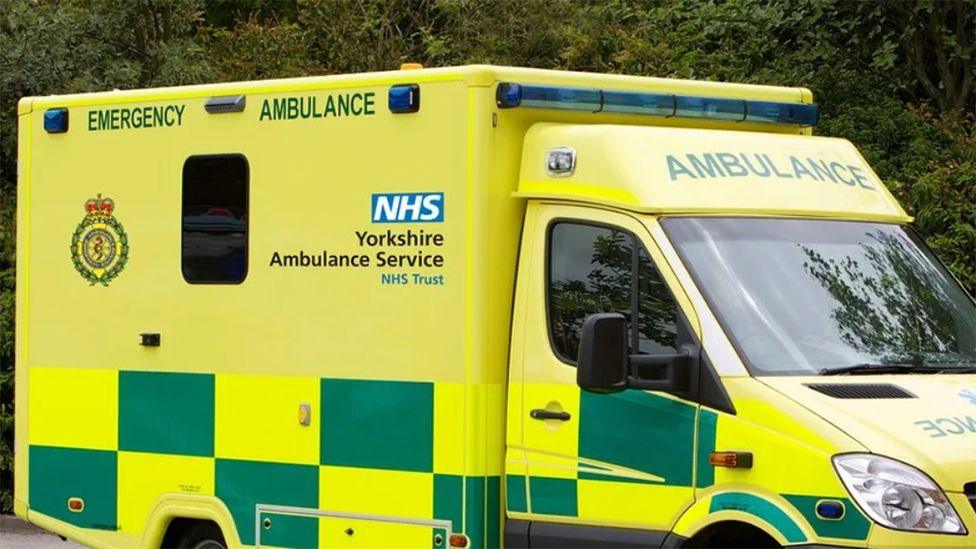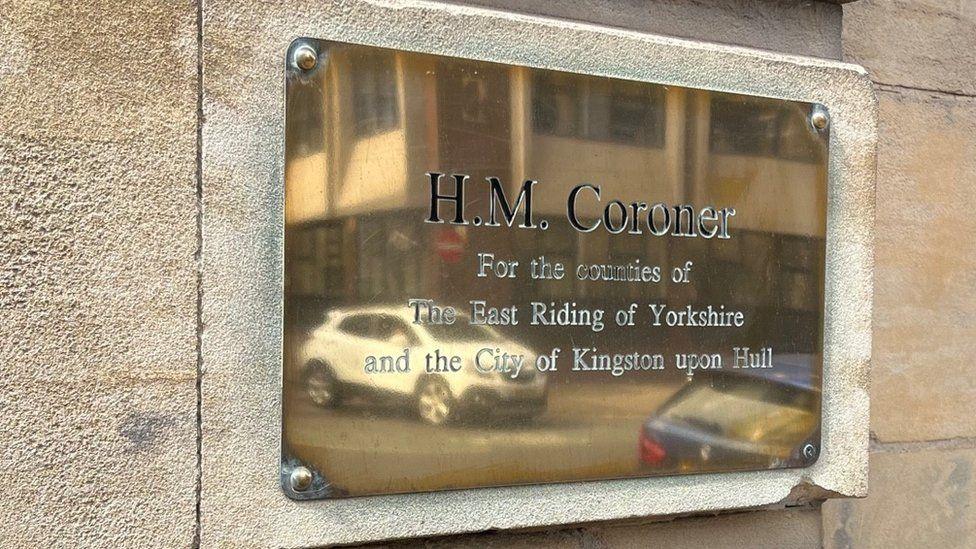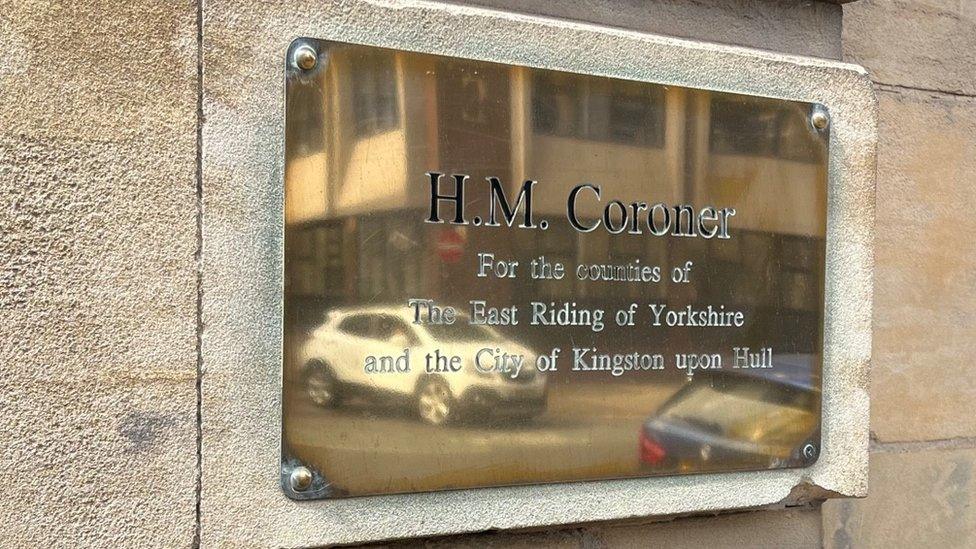Coroner's concerns over ambulance response times

Assistant Coroner Jessica Swift has written a Prevention of Future Deaths report
- Published
A coroner has raised concerns about ambulance response times after the death of a man in Hull.
Josh Smith, 30, died at Hull Royal Infirmary in December 2022 after a cardiac arrest caused his brain to be starved of oxygen.
Kingston upon Hull and East Riding assistant coroner Jessica Swift has written a Prevention of Future Deaths report.
Yorkshire Ambulance Service (YAS) said its thoughts were with Mr Smith's family adding: "We are very sorry that operational pressures delayed our response to him".
In her report, Ms Swift said the inquest heard evidence that Yorkshire Ambulance Service (YAS) response times for category one calls, although improved, "remain outside of the target response standards".
The coroner said Mr Smith had medical complications after a road crash in 2009 left him as a quadriplegic.
He became ill with a chest infection and an ambulance was called on 19 December 2022.
Following an inquest last month, Ms Swift wrote: "At 05:49 hours, an ambulance was called for Mr Smith as he had been found unresponsive and was not breathing.
"The 999 call was placed within a queue and was answered by the ambulance service at 06:05 hours.
"The ambulance service triaged this call and a category one response was achieved. An ambulance arrived with Mr Smith at 06:21 hours."
Mr Smith's condition worsened and he died three days later.

A coroner's inquest found Josh Smith died after a cardiac arrest caused his brain to be starved of oxygen
In the Prevention of Future Deaths report, Ms Swift wrote: "I was told that the response standards for both category one and category two calls (for the year to date), whilst improved from the time of Mr Smith’s death, still remain outside of the target response standards (both on average and at the 90th centile).
"The evidence heard was that the national target for hospital handover by the ambulance service, of 15 minutes, is still not being achieved.
"Evidence suggested that whilst there has and continues to be efforts made by the ambulance service and acute hospitals to increase the speed at which ambulances handover their patients, that delays in this process continue to impact upon the speed of the ambulance response to patients waiting within the community."
A YAS spokesperson said: “At the time of the call we were experiencing sustained and unprecedented demands for our services and there were delays with answering 999 calls for ambulance services across the country.
"We are sorry that we were unable to respond to Josh as quickly as we would have liked to.
“Whilst we continue to experience delays in handing over patients at hospitals, improvements have been made and we continue to work with our partners to prioritise patient care."
Follow BBC East Yorkshire on Facebook, X (formerly Twitter), external, and Instagram. Send your story ideas to eastyorkslincs.news@bbc.co.uk, external
Related topics
- Published20 May 2024

- Published30 June 2023
